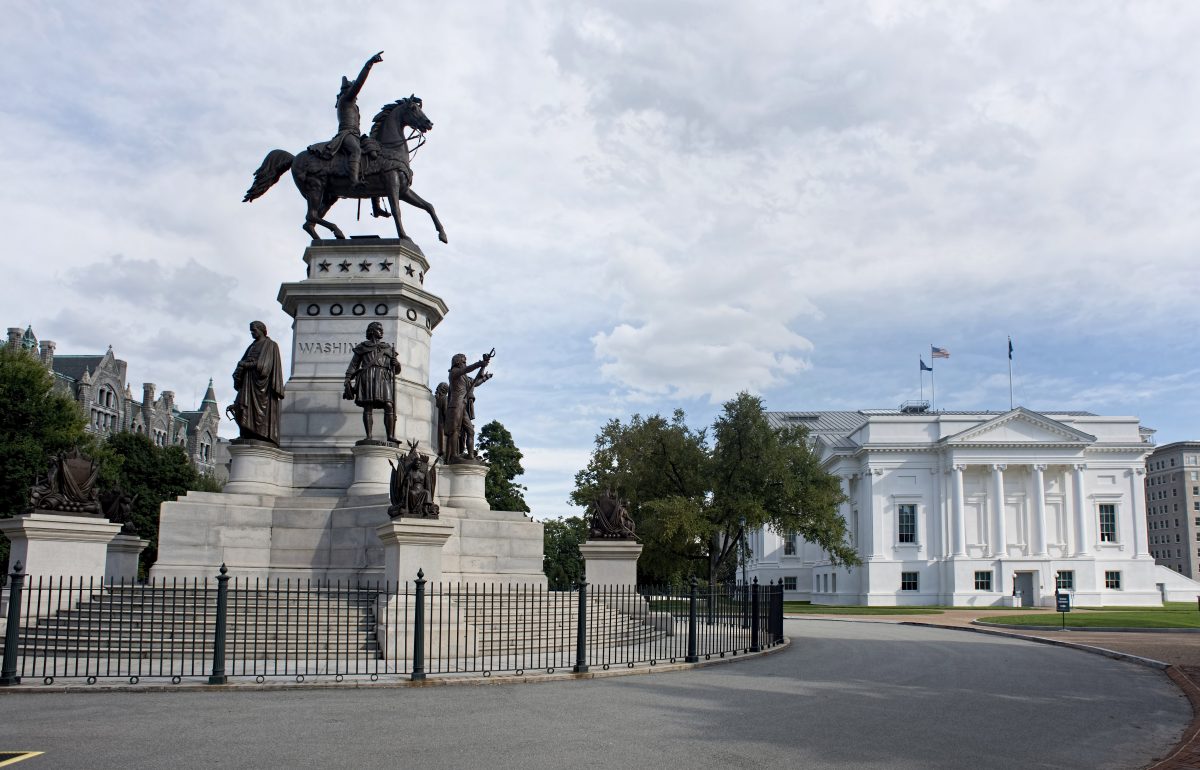After months of debate, Gov. Glenn Youngkin signed a compromise budget passed by the state legislature during a special session on May 13.
The new budget passed with broad bipartisan support, with vote totals coming in at 94-6 in the House of Delegates and 39-1 in the state Senate. Most of Democrats’ priorities from the March version of the legislation—which Youngkin all but vetoed with 233 amendments—were included in the final budget, with a few notable exceptions.
Under the new budget, Virginians will not see any substantive change to current taxes. While Democrats rallied behind the introduction of a digital sales tax, the proposal was dropped in favor of getting the governor’s support for the budget.
According to state Sen. Creigh Deeds, the intent behind the proposed digital sales tax was to raise revenues to support needed investments in K-12 education.
“Last year we got hit with this [Joint Legislative Audit and Review Commission] report that told us what we knew: that the state was underfunding K to 12 education—but it quantified that at nearly $4 billion a year. Well, the only way we’re going to address that in the long run is new revenue,” says Deeds. “The proposal we had generates about 1.2 billion over a biennium.”
Even without the digital sales tax, the budget still includes significant investments in education and 3 percent raises for teacher and school support staff annually for the next two years.
“I’m really proud of the fact that we’re able to have money for the schools. [It’s] a historic level of investment in K-12, early education, as well as higher ed,” says 55th District Del. Amy Laufer about the more than $2 billion increase in education appropriations. “The pay raise for teachers at 3 percent was exciting.”
For all of its investments in education, the budget’s final version cut a provision allowing localities to hold a referendum on a 1 percent tax increase to fund public school construction.
“I know for Albemarle County, that was something they were really looking forward to,” says Laufer. “And I do believe we’re gonna try to pursue that again next year.”
Also cut was language requiring that Virginia reenter the Regional Greenhouse Gas Initiative, a multi-state effort to reduce carbon dioxide emissions through caps on power plants.
“We fought very hard to keep RGGI in there. But we just lost that fight,” says Deeds. “I don’t think the governor had the authority to pull us out of RGGI in the first place. There’s litigation on that. I think that we’ll go back in RGGI long haul, but there was language in there that we fought very hard to keep.”
The commonwealth entered the environmental program in 2020 after a vote by the state legislature, but the decision was reversed by Youngkin in 2021. A suit by the Southern Environmental Law Center is currently underway, arguing only the state legislature—not the governor—could pull Virginia out of RGGI.
The SELC declined to comment on the removal of RGGI language from the budget given the ongoing nature of the litigation.
Both Deeds and Laufer support the SELC suit and Virginia’s reentry into RGGI, but critics of the environmental initiative argue the resulting rate hikes are a burden on consumers.
“[RGGI is] paid for by a surcharge for ratepayers. But the reality is, Virginia has received much more in benefit than we’ve ever paid into it; we’ve received an incredible amount of money,” says Deeds. “There are things that we are going to have to spend general fund dollars on because we don’t have the RGGI money.”
“The governor should not be able to take these things out just on a whim,” says Laufer.
Several state environmental groups expressed frustration with the removal of RGGI language from the budget. In a joint statement from the Virginia League of Conservation Voters, leaders of several climate-focused groups said that “Gov. Youngkin got us into this mess. But it is incumbent on lawmakers to do everything they can going forward to protect vulnerable communities from climate change and rising energy costs, and to secure a clean energy future.”
Still, local lawmakers are pleased about several priorities in the final budget legislation.
“I’m really proud of our leadership for pursuing all of our goals in terms of funding,” says Laufer, who had three items included in the final budget. “I’m proud as a freshman that I was able to accomplish that.”
“The budget itself, and the spending plan itself, is something that we can all be proud of,” says Deeds. “I’m just disappointed about a couple of things, but I’ll get over it. We’ll work towards fixing that in a little while.”
